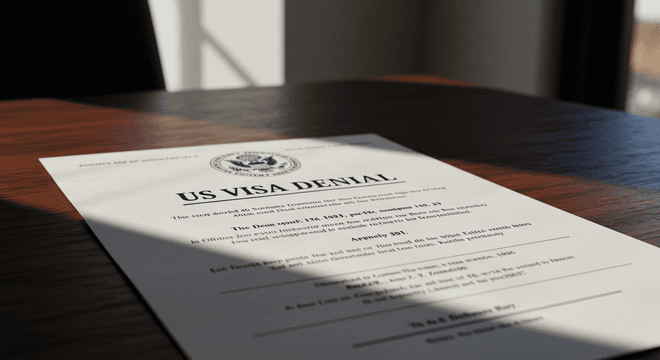
Setting Up Businesses in the U.S.: A Guide for Nigerian Entrepreneurs
The United States is one of the world’s most attractive destinations for entrepreneurs seeking to expand their businesses. With its robust economy, business-friendly policies, and access to a vast consumer market, the U.S. offers unique opportunities for Nigerian entrepreneurs. However, setting up a business in the U.S. involves navigating legal and regulatory requirements that vary across states and industries. This guide provides an overview of the key steps and considerations for Nigerian business owners looking to establish their presence in the U.S.
1. Choose the Right Business Structure
Selecting an appropriate business structure is a critical first step in establishing a business in the U.S. The main options include:
Sole Proprietorship: Ideal for small-scale operations but offers no liability protection.
Limited Liability Company (LLC): A popular choice for foreign entrepreneurs due to its flexibility and liability protection.
Corporation (C-Corp or S-Corp): Suitable for larger businesses, especially those planning to raise capital through investors.
Each structure has implications for taxation, liability, and operational complexity. Consulting a legal expert is advisable to determine the most suitable option for your business goals.
2. Register Your Business
Once you’ve decided on a business structure, the next step is to register your business with the appropriate state authorities. Key steps include:
Choosing a Business Name: Ensure the name is unique and complies with state naming rules.
Filing Articles of Incorporation/Organization: Required for LLCs and corporations.
Obtaining an Employer Identification Number (EIN): Issued by the IRS, this is essential for tax purposes and hiring employees.
Different states have varying registration fees and requirements, so it’s crucial to research the state where you plan to establish your business.
3. Open a U.S. Bank Account
A U.S. business bank account is essential for managing finances and building credibility. To open an account, you’ll typically need:
Your EIN
Business registration documents
Proof of identity for the business owner(s)
Working with an international bank with a presence in Nigeria and the U.S. can simplify this process.
4. Understand Tax Obligations
Taxation in the U.S. is complex, with federal, state, and local taxes to consider. Key taxes include:
Income Tax: Levied on profits earned by the business.
Sales Tax: Applicable if you sell goods or services.
Payroll Tax: Required if you have employees.
Engaging a tax professional familiar with U.S. and Nigerian tax systems can help ensure compliance and avoid penalties.
5. Obtain Necessary Licenses and Permits
Depending on your industry and location, you may need specific licenses and permits to operate legally. Common examples include:
Health permits for food businesses
Professional licenses for specialized services
Zoning permits for physical locations
Failure to obtain the required licenses can lead to fines or business closure.
6. Protect Your Intellectual Property
If your business involves unique products, services, or branding, protecting your intellectual property is essential. Consider:
Trademark Registration: For brand names, logos, and slogans.
Patents: For innovative products or processes.
Copyrights: For original content such as software or publications.
The U.S. Patent and Trademark Office (USPTO) handles these registrations.
7. Hire Local Talent
The U.S. labor market offers access to a highly skilled workforce. However, hiring employees requires compliance with labor laws, including:
Paying minimum wage
Adhering to anti-discrimination policies
Providing workers’ compensation insurance
Alternatively, you can engage independent contractors for specific projects.
8. Navigate Immigration Requirements
As a Nigerian entrepreneur, you’ll need the appropriate visa to establish and manage your business in the U.S. Common visa options include:
E-2 Investor Visa: For substantial investments in a U.S. business.
L-1 Visa: For transferring executives or managers from a Nigerian office.
EB-5 Visa: For significant investments that create jobs.
Each visa type has specific requirements, so working with an immigration attorney is essential.
9. Leverage Business Incentives
Many U.S. states and cities offer incentives to attract foreign investors, such as:
Tax breaks
Grants and funding programs
Access to business incubators and accelerators
Research the incentives available in your chosen location to maximize your investment.
10. Build Strategic Partnerships
Collaborating with local businesses, chambers of commerce, and trade organizations can help you navigate the U.S. business environment and expand your network. These partnerships can also enhance your credibility and market reach.
Conclusion
Setting up a business in the U.S. is a rewarding endeavor but requires careful planning and adherence to legal requirements. At 1st Attorneys, we specialize in providing tailored legal and business advisory services to Nigerian entrepreneurs looking to expand internationally. Contact us today to discuss how we can assist you in making your U.S. business venture a success.
Ready to take the next step? Reach out to 1st Attorneys for expert guidance on business setup, immigration, and legal compliance in the U.S.


